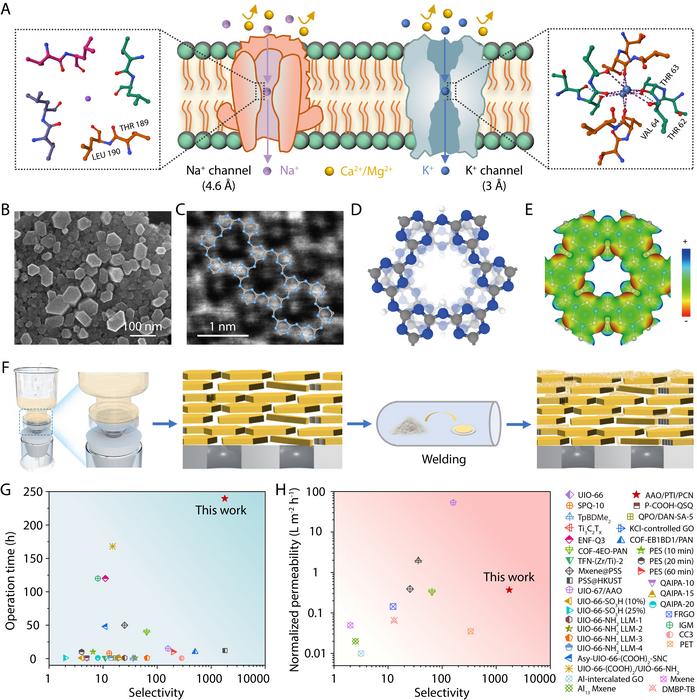Enhanced Smoking Cessation Support Essential for Surgical Patients Across Europe, Study Reveals
A groundbreaking pan-European study has unveiled a troubling link between smoking and postoperative complications in elective surgery patients, highlighting a critical area of concern that demands urgent attention from healthcare systems worldwide. Researchers from the University of Birmingham, collaborating with the STARSurg Collaborative and supported by the National Institute for Health and Care Research (NIHR), […]


A groundbreaking pan-European study has unveiled a troubling link between smoking and postoperative complications in elective surgery patients, highlighting a critical area of concern that demands urgent attention from healthcare systems worldwide. Researchers from the University of Birmingham, collaborating with the STARSurg Collaborative and supported by the National Institute for Health and Care Research (NIHR), have analyzed data from over 16,000 patients across 442 hospitals spanning 29 countries in Europe. Their findings reveal that almost one in five patients undergoing elective surgery are current smokers, a statistic that carries significant implications for surgical outcomes and healthcare resource allocation.
This extensive observational study, published in The Lancet Regional Health – Europe, presents a comprehensive evaluation of smoking prevalence among elective surgical patients and its direct association with postoperative complications. Particularly striking is the discovery that smoking rates are disproportionately higher among younger adults aged 18 to 40, with prevalence reaching nearly 27%, and among male patients, where rates hover around 22%. Even among otherwise healthy individuals without long-term medical conditions, smoking remains alarmingly high at approximately 25%. These demographics underscore a vulnerable patient population facing heightened risks during and after surgical procedures.
Dr. Sivesh Kamarajah, the study’s lead author, emphasized the importance of these findings by noting that smokers and recent ex-smokers—those who quit within six weeks to one year before surgery—experience significantly increased odds of adverse postoperative events compared to patients who have never smoked. This elevated risk not only affects patient morbidity but also translates into extended hospital stays and elevated healthcare costs, burdening national healthcare systems like the NHS in the United Kingdom.
The investigation provides robust evidence challenging conventional wisdom. Although current guidelines recommend abstinence from smoking for at least six weeks prior to elective surgery, this advice largely stems from outdated studies conducted over a decade ago. The new data expose persistent high complication rates extending up to one year post-cessation, indicating that even recent quitters face substantial surgical risks. This revelation urges a reevaluation of current perioperative smoking cessation protocols to optimize patient safety.
The implications of this research extend beyond individual health outcomes. Tobacco smoking remains a leading global risk factor, accounting for over 10% of all deaths and nearly 142 million years of life lost annually. Despite concerted efforts in public health campaigns, Europe continues to exhibit the highest regional smoking prevalence worldwide, with more than a third of men and one-fifth of women actively smoking. The intersection of this persistent epidemic with elective surgical care presents an untapped opportunity for targeted intervention.
Elective surgery, often characterized by waiting periods of three to six months before the procedure, offers a unique window for healthcare providers to implement and intensify smoking cessation strategies. Ensuring that patients utilize this timeframe effectively could substantially reduce postoperative complications, bolster recovery rates, and alleviate pressures on healthcare infrastructures. Embedding structured smoking cessation programs within surgical pathways may also yield long-term health benefits, reinforcing the preventive potential of integrated care models.
The comprehensive nature of this research was enabled by the CASCADE cohort study, which meticulously collected and analyzed smoking status, surgical outcomes, and postoperative complications across a vast and diverse European patient population. These methodological strengths lend considerable weight to the findings, allowing for generalizable conclusions that are relevant across multiple healthcare systems and surgical specialties.
However, the study also exposes ongoing gaps in the implementation of smoking cessation interventions within secondary care’s elective surgery practices. Despite clear evidence of risk, the adoption of systematic programs remains inconsistent, often sidelined amidst competing clinical priorities. This inertia potentially undermines improvements in surgical outcomes and highlights a pervasive need for policy reform.
Furthermore, the data bring attention to the economic ramifications of smoking-related postoperative complications. Extended hospitalizations driven by such complications impose substantial financial strain on healthcare budgets, particularly within publicly funded systems like the NHS. Investment in cessation initiatives is not only a clinical imperative but also an economic strategy with promise for cost savings.
Dr. Kamarajah and colleagues advocate for urgent, multidisciplinary action to harness the elective surgical setting as a preventive platform. By combining surgical planning with behavioral health interventions, providers can catalyze significant improvements in patient prognosis. This approach necessitates enhanced training for surgical teams, dedicated cessation services, and coordinated follow-up care to sustain abstinence and promote holistic recovery.
In conclusion, this pan-European observational study elucidates a profound and underrecognized challenge: the pervasive impact of smoking on surgical outcomes in elective care. The high prevalence of smoking among surgical patients, especially younger and healthier individuals, combined with persistently elevated postoperative complication rates, underscores the vital need to redefine perioperative care frameworks. The integration of robust, evidence-based smoking cessation measures presents a transformative opportunity to enhance patient safety, reduce healthcare expenditure, and ultimately save lives amidst the ongoing tobacco epidemic.
Subject of Research: People
Article Title: Prevalence, trends and outcomes from smoking in elective surgical systems: a secondary analysis of a prospective observational cohort study across 442 hospitals from 29 countries across Europe
News Publication Date: 15-Apr-2025
Web References: 10.1016/j.lanepe.2025.101282
References: Published in The Lancet Regional Health – Europe
Keywords: Public health, Surgery
Tags: healthcare resource allocation and smokingimplications of smoking on surgical outcomesmale smoking rates in elective proceduresNational Institute for Health and Care Research supportpan-European study on smoking and surgerypostoperative complications and smokingsmoking cessation support for surgical patientssmoking prevalence in elective surgerySTARSurg Collaborative findingsUniversity of Birmingham surgical researchurgent need for enhanced smoking cessation programsyoung adult smokers in surgery
What's Your Reaction?

































